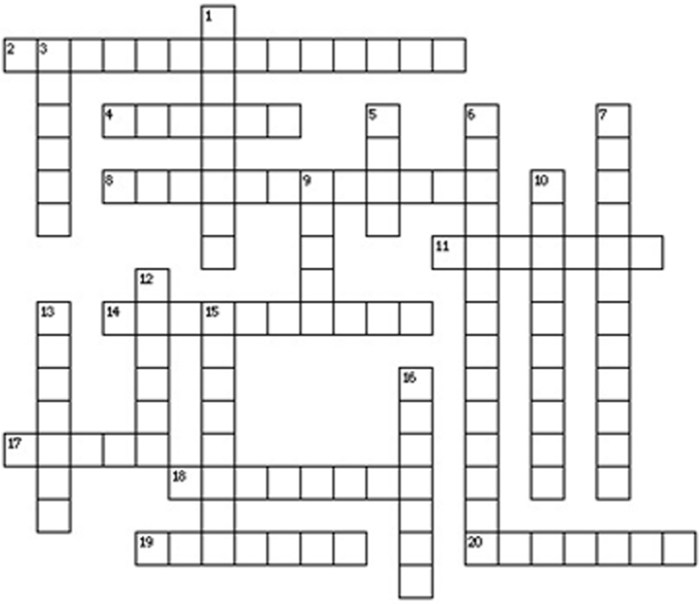Embark on an enlightening journey into the realm of Julius Caesar crossword puzzle answers, where the enigmatic characters and captivating plotlines of Shakespeare’s masterpiece come alive. Delve into the intricate web of relationships, political machinations, and timeless themes that have captivated audiences for centuries.
Through the lens of crossword puzzles, we unravel the complexities of Julius Caesar’s character, the motivations of Brutus and Cassius, and the profound influence of Calpurnia and Portia. The historical context of Rome’s tumultuous era provides a backdrop against which the play’s events unfold, shaping the destinies of its protagonists.
Character and Relationship Analysis
Julius Caesar, the titular character of the play, is a complex and enigmatic figure. He is a brilliant military leader and a charismatic politician, but he is also ambitious and ruthless. His relationship with Brutus, his adopted son, is central to the play.
Brutus is a noble and idealistic man, but he is also naive and easily manipulated. Cassius, another conspirator against Caesar, is a cunning and ambitious politician who sees Caesar as a threat to his own power. Antony, Caesar’s loyal friend and lieutenant, is a skilled orator and a formidable warrior.
His relationship with Caesar is based on mutual respect and admiration.
Calpurnia and Portia
Calpurnia, Caesar’s wife, is a superstitious and devoted woman. She has a premonition of Caesar’s death and tries to persuade him not to go to the Senate on the day of his assassination. Portia, Brutus’s wife, is a strong and intelligent woman who shares her husband’s ideals.
She is aware of the dangers involved in the conspiracy against Caesar, but she supports Brutus’s decision to participate.
Historical Context and Political Intrigue
The play is set in Rome in 44 BC, a time of great political turmoil. The Roman Republic is in decline, and Caesar has emerged as a powerful dictator. The conspirators against Caesar believe that he is a tyrant who will destroy the Republic.
They are motivated by a desire to preserve the Republic and restore its former glory.
Role of the Conspirators
The conspirators against Caesar are a diverse group of men, each with his own reasons for wanting Caesar dead. Cassius is the mastermind behind the conspiracy. He is a skilled politician and a persuasive speaker. Brutus is a noble and idealistic man who believes that Caesar is a threat to the Republic.
The other conspirators include Casca, Cinna, Metellus Cimber, and Trebonius. They are all men of high rank and influence in Rome.
Themes and Symbolism: Julius Caesar Crossword Puzzle Answers

Ambition
Ambition is a major theme in the play. Caesar is ambitious to become the absolute ruler of Rome. The conspirators are ambitious to preserve the Republic. Brutus is ambitious to be seen as a hero and a savior.
Betrayal, Julius caesar crossword puzzle answers
Betrayal is another major theme in the play. Brutus betrays Caesar by joining the conspiracy against him. Antony betrays the conspirators by siding with Caesar’s supporters. Cassius betrays Brutus by revealing his plans to the other conspirators.
Nature of Power
The nature of power is a third major theme in the play. Caesar believes that power is a necessary evil. The conspirators believe that power is a corrupting influence. Brutus believes that power should be used for good.
Symbolism
The play is full of symbolism. The storm that rages on the night of Caesar’s assassination symbolizes the political turmoil in Rome. The soothsayer’s warning to Caesar to “beware the Ides of March” symbolizes the inevitability of fate. The ghost of Caesar that appears to Brutus symbolizes the guilt that he feels for betraying him.
Dramatic Structure and Language
Structure
The play is divided into five acts. The first act introduces the characters and sets up the conflict. The second act shows the conspiracy against Caesar taking shape. The third act culminates in Caesar’s assassination. The fourth act shows the aftermath of the assassination and the rise of Antony.
The fifth act concludes with the defeat of the conspirators and the restoration of order to Rome.
Language
The play is written in blank verse, a form of unrhymed iambic pentameter. The use of blank verse gives the play a sense of grandeur and formality. The play also contains a number of famous speeches, including Antony’s funeral oration for Caesar.
Literary Devices
The play makes use of a number of literary devices, including foreshadowing, irony, and soliloquies. Foreshadowing is used to hint at events that will happen later in the play. Irony is used to create a sense of tension and suspense.
Soliloquies are used to reveal the characters’ inner thoughts and feelings.
Adaptations and Cultural Impact
Adaptations
The play has been adapted for stage, film, and television numerous times. Some of the most famous adaptations include:
- The 1953 film Julius Caesar, directed by Joseph L. Mankiewicz
- The 1970 BBC television series Julius Caesar, directed by Herbert Wise
- The 2005 film Julius Caesar, directed by Uli Edel
Cultural Impact
The play has had a profound impact on Western culture. It has been used as a source of inspiration for political leaders and artists for centuries. The play’s themes of ambition, betrayal, and the nature of power are still relevant today.
Expert Answers
What are the key character traits of Julius Caesar?
Julius Caesar is portrayed as an ambitious, charismatic, and ruthless leader, with a keen understanding of human nature and a thirst for power.
How does Brutus’s relationship with Caesar evolve throughout the play?
Initially a loyal friend and supporter, Brutus is gradually swayed by Cassius’s arguments and ultimately joins the conspiracy against Caesar, torn between his love for Caesar and his belief in the greater good of Rome.
What is the significance of the soothsayer’s warning to Caesar?
The soothsayer’s warning, “Beware the Ides of March,” foreshadows Caesar’s assassination and serves as a reminder of the unpredictable nature of fate and the fragility of human life.